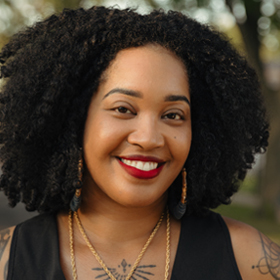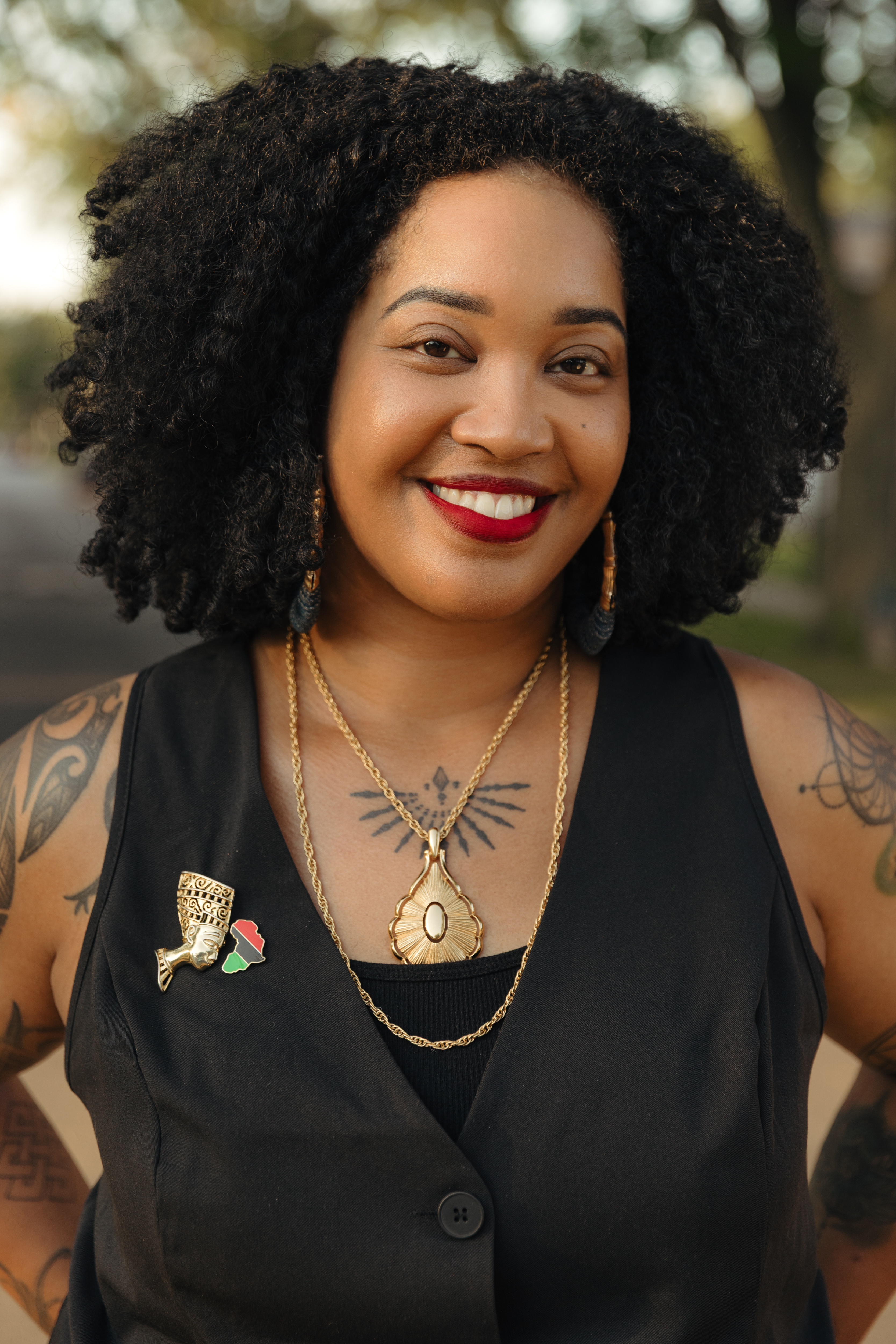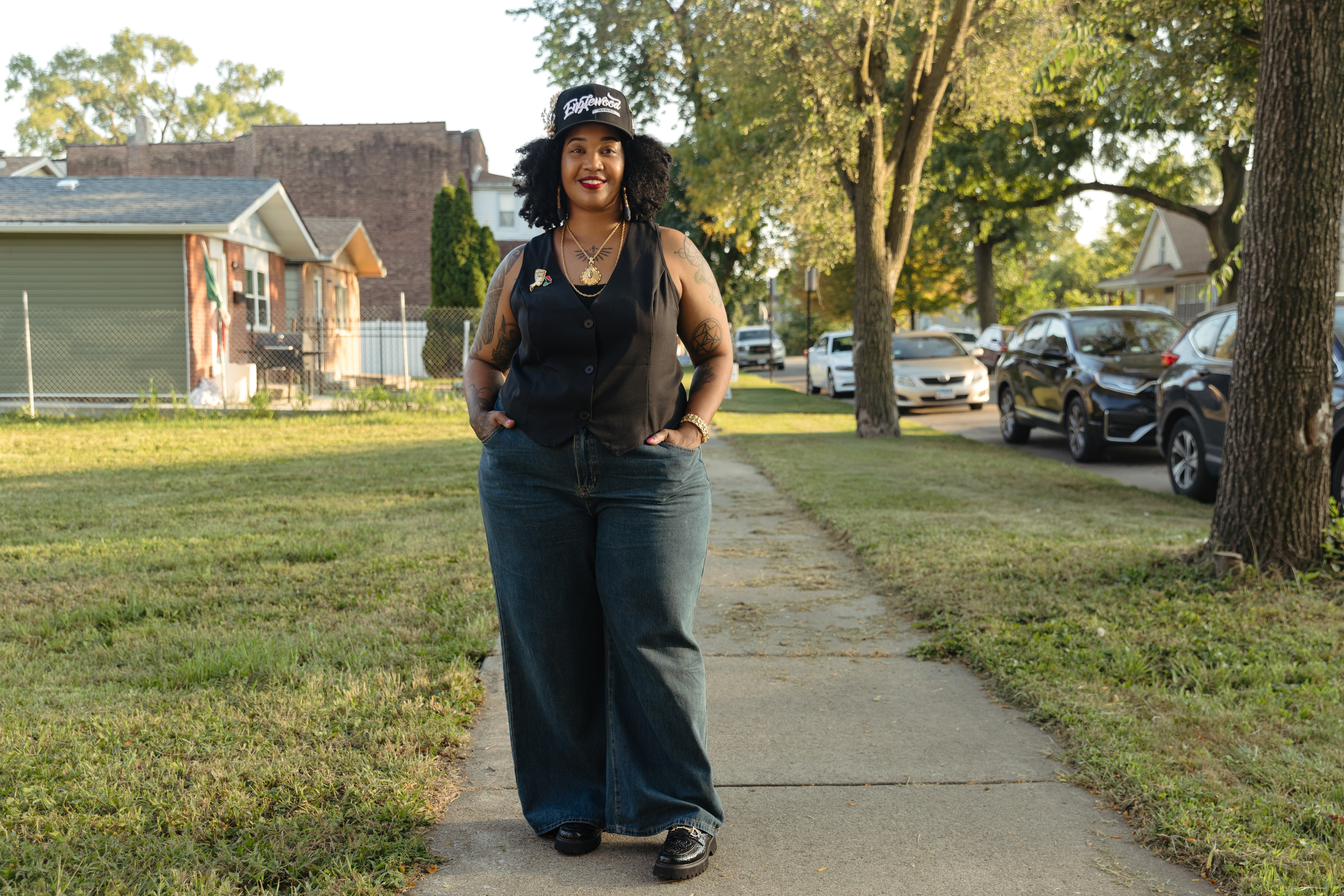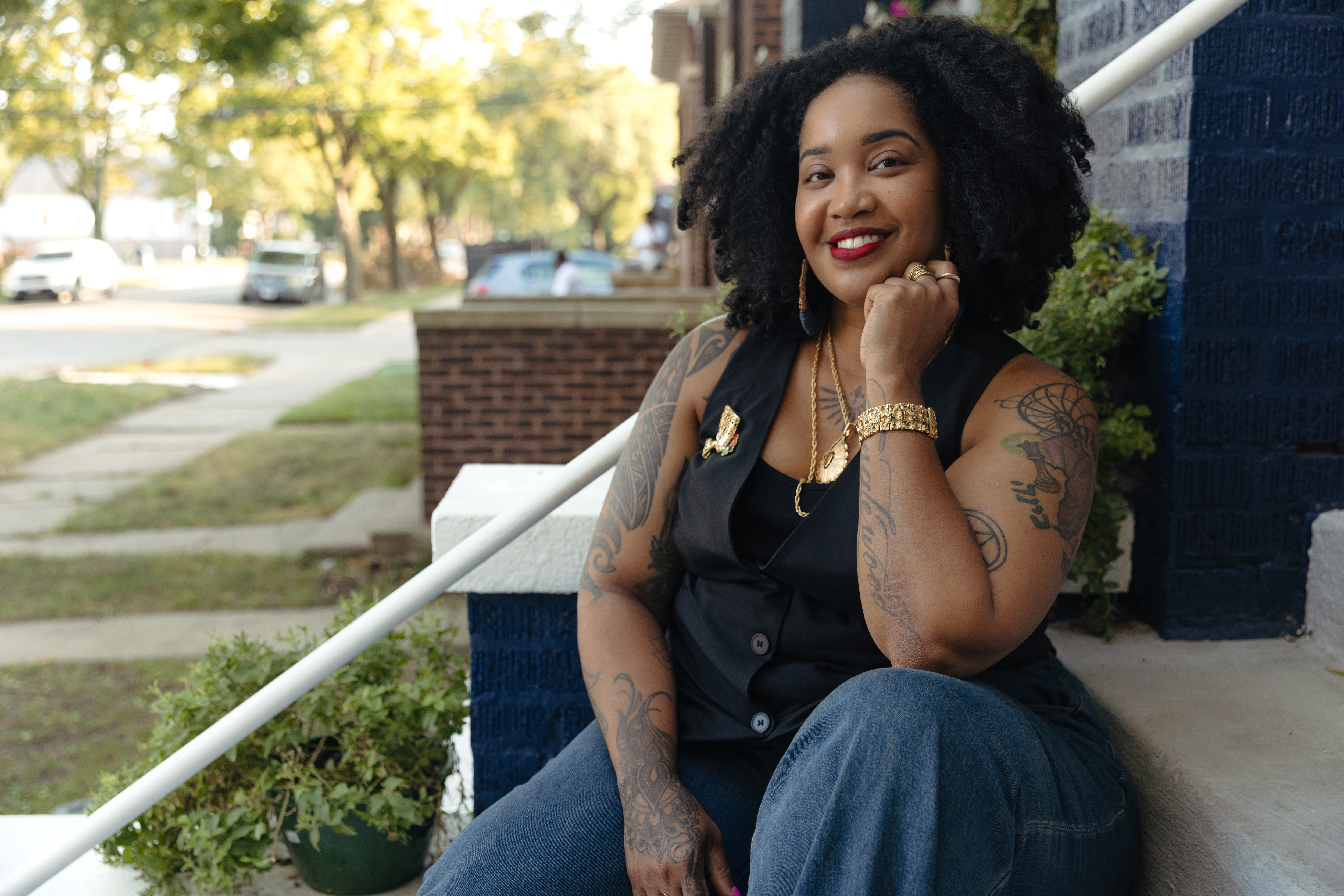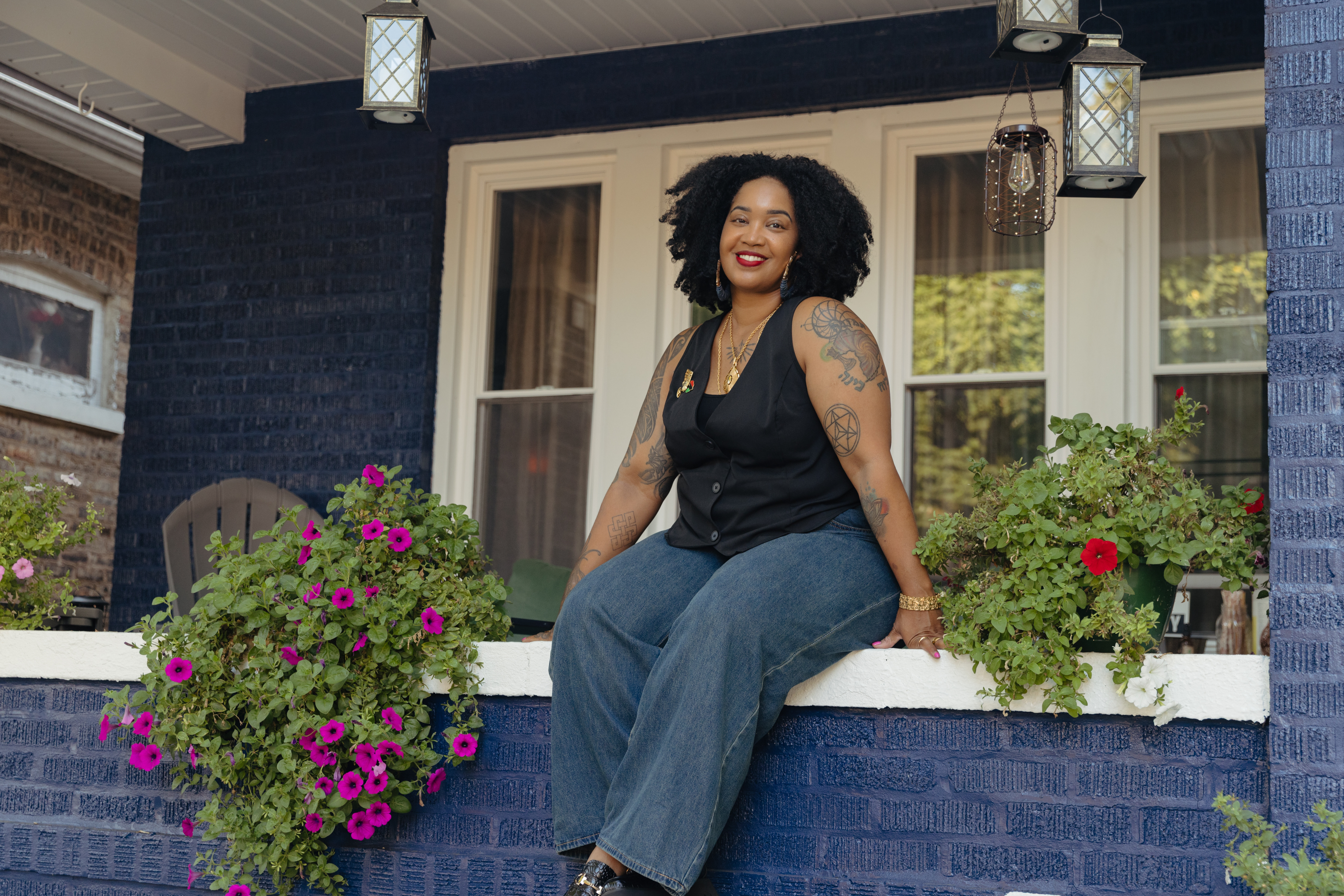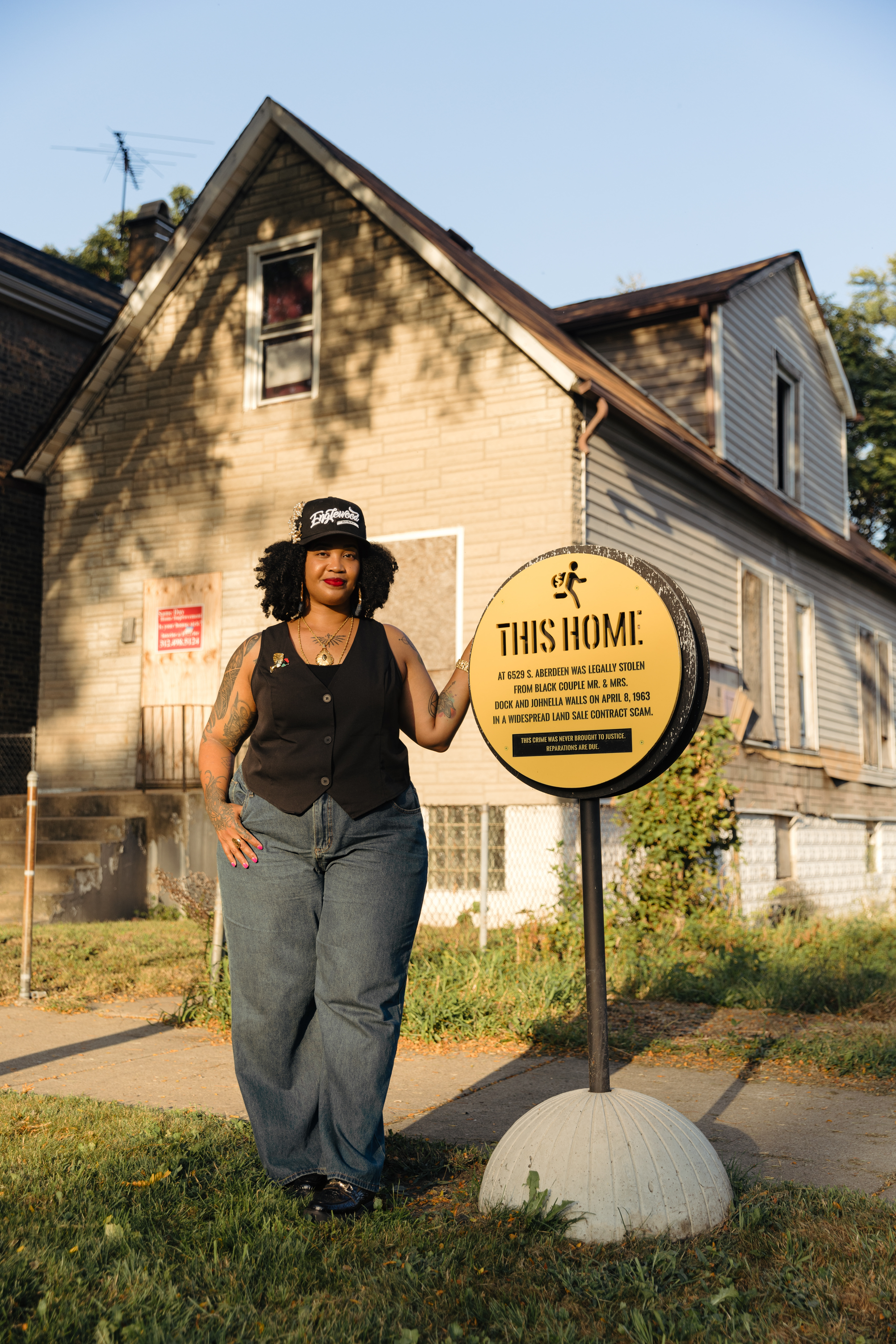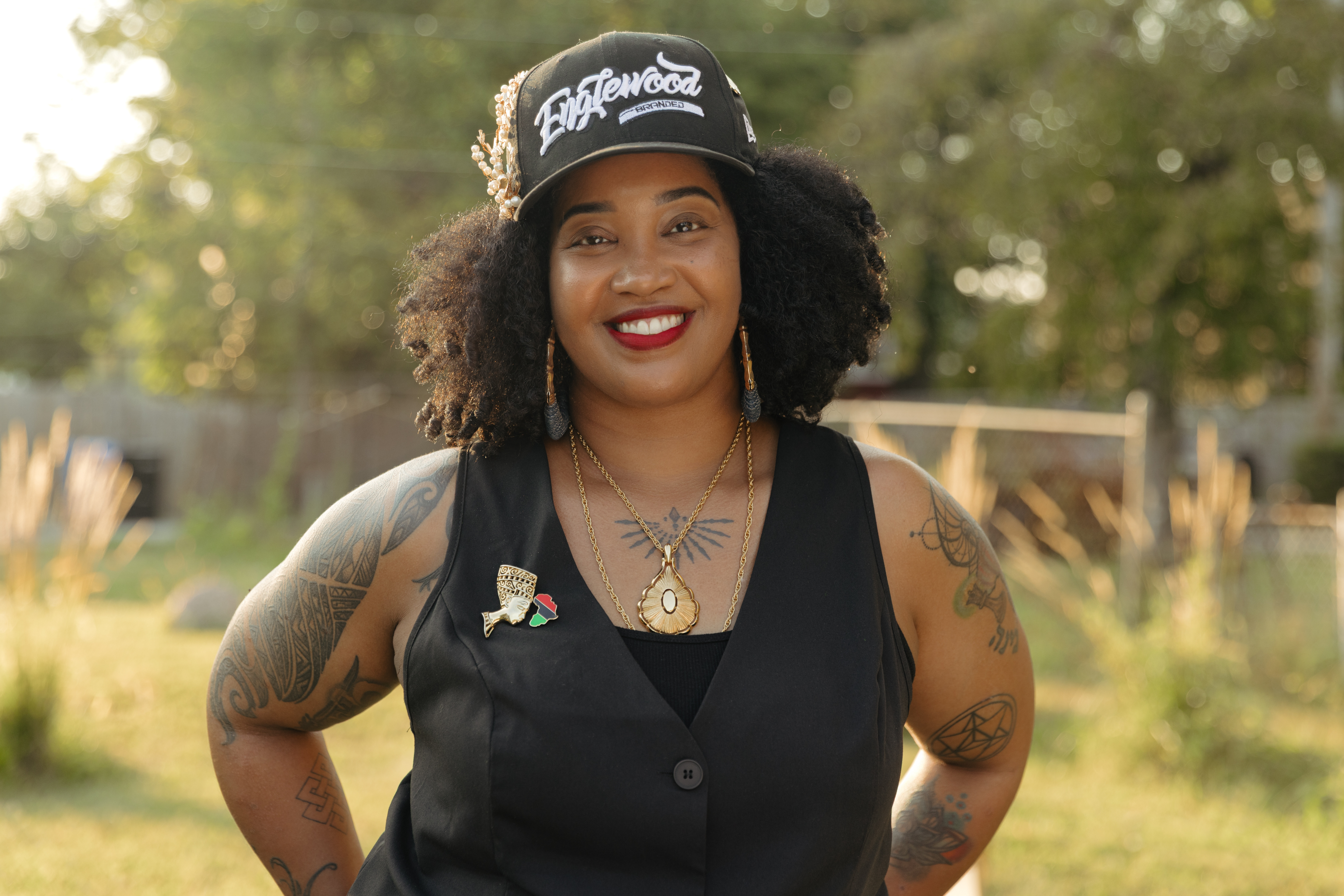About Tonika's Work
Tonika Lewis Johnson is a photographer and social justice artist exposing the impacts of systematic disinvestment in urban communities. Johnson uses photography, maps, and multimedia storytelling to articulate the vast disparities in conditions, infrastructure, and investment between Chicago’s neighborhoods. At the same time, she creates pathways for residents to begin the process of restitution and repair.
Johnson’s Folded Map Project (2018–ongoing) illustrates how decades of harmful policies have divided Chicago socially and physically. Johnson pairs corresponding residential addresses on the North and South Sides of the city’s grid of streets. She then documents the contrasts—and commonalities—between life on the two sides in portraits of the mostly White residents at home on the North Side and the predominantly Black residents at their homes in South Side neighborhoods. Additionally, she facilitates meetings between “map twins,” residents who live at corresponding North and South Side addresses, often miles apart on the same street. These meetings enable frank conversations and establish new bonds across the city. The project has expanded into a multifaceted initiative—including a short film, a school curriculum, and an action kit—that sparks cross-neighborhood connection. Building on this work, Johnson created the public art installation, Inequity for Sale (2021), to expose one of the causes of deterioration in South Side neighborhoods like Englewood, where Johnson is a lifelong resident. In the 1950s and 1960s, many houses in Englewood were sold to Black families under unscrupulous land sale contracts. These contracts demanded substantially more than fair market value and granted ownership only after the full amount of the contract was paid, effectively denying buyers equity in their homes. In front of houses sold or lost through land use contracts, Johnson installed bright yellow plaques describing the injustice of how residents lost their homes. An accompanying podcast, photographs, and recorded interviews with affected residents further educate Chicagoans about the histories of their communities.
Johnson’s latest project is UnBlocked Englewood (2023–ongoing), developed in partnership with the Chicago Bungalow Association. The arts-driven project aims to reclaim vacant lots and restore homes that were impacted by land sale contracts and in need of costly repairs, reimagining home improvement and neighborhood revitalization as public art. Johnson’s creative approach to reparative action led to a public arts grant from the City of Chicago, and to date half of the project’s 25 homes have been repaired. Through a practice that answers history with action, Johnson realizes the potential for art to create thriving communities and provides a roadmap for the many other cities facing similar challenges arising from entrenched socioeconomic divides.







